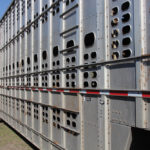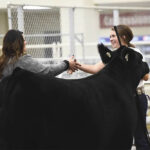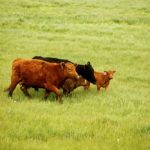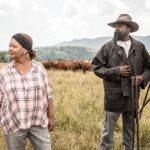
News

Pandemic-related income loss expected to double food insecurity in Canada
Higher priority on food, strong social and economic policy needed to address troubling levels of hunger
Our condolences to the Geinger family
Purely Purebred with Mike Millar: News about you from the Sept. 28, 2020 issue of Canadian Cattlemen
BCRC announces Beef Research Mentorship Program participants
NewsMakers from the September 28, 2020 issue of Canadian Cattlemen

“Genomic Time Travel” approach finds genetic traits to breed more productive, resilient African cattle
New study deploys advanced tools to retrace 1,000 years of African pastoralist cattle breeding, identifying traits to help cattle survive blistering heat, drought and advancing diseases

New transport regulations require more vigilance from producers
Producers must ensure cattle are fit to travel and communicate all details to transporters before their animals leave the farm.

Fostering a new generation of U.S. beef producers
Youth for the Quality Care of Animals provides an opportunity for young livestock exhibitors to prove they’re doing the right thing when it comes to animal health and well-being

Canadian Beef Advisors set long-term industry goals
Advisors release first set of ambitious long-term goals for the Canadian beef industry designed to build government support and public trust.

Filmmaker reclaims a piece of Alberta’s ranching history with John Ware film
Cheryl Foggo's film, John Ware Reclaimed, debuts at the Calgary International Film Festival on Sept. 24.

Report puts dollar value on stewardship provided by Alberta leaseholders
Legislated land management costs provide millions in value to the province, new report finds

Researchers find no methane-reducing benefit from feeding biochar
Lab research had found biochar may cut methane emissions, but so far researchers haven't seen that benefit translate into the feedlot.



